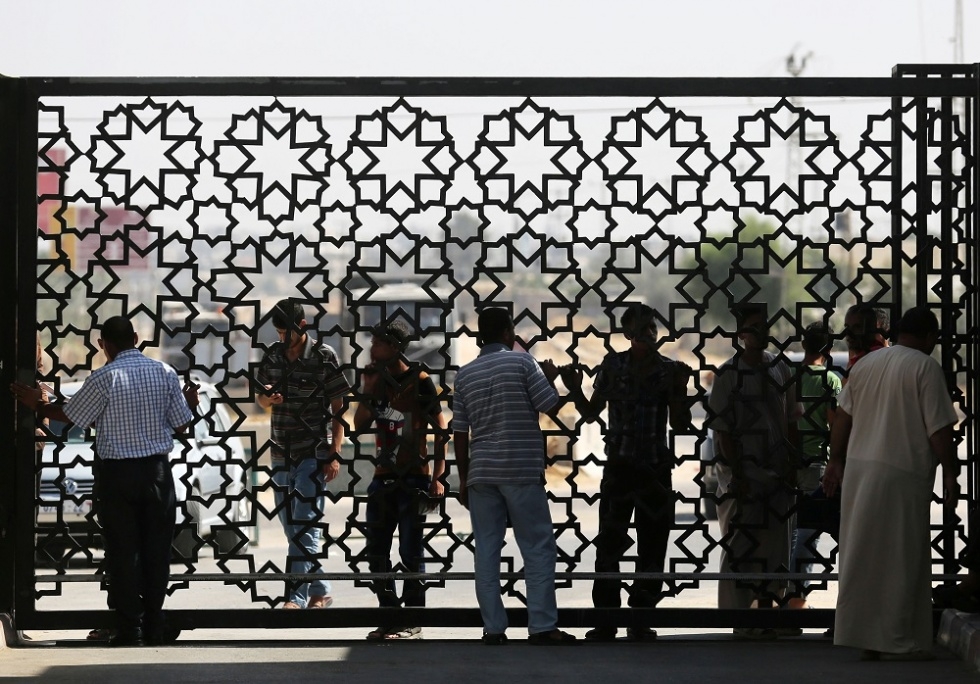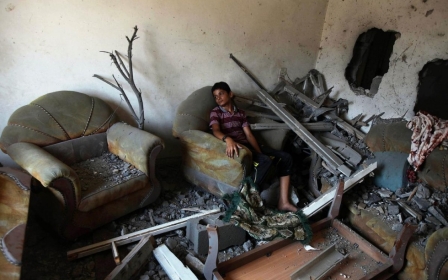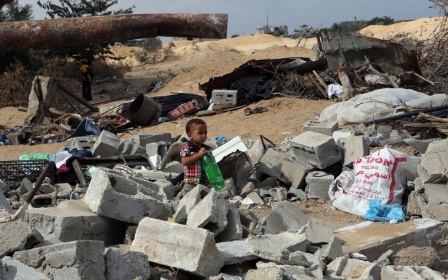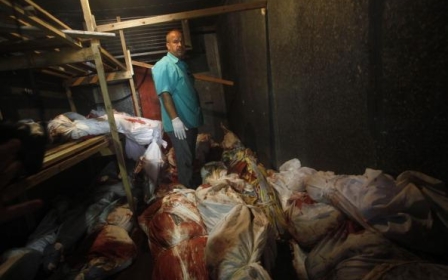Confusion surrounds announced PA takeover of Gaza’s border crossings

GAZA CITY - The Palestinian Authority (PA) has announced that it will take control of the Erez and Kerem Shalom crossings between Israel and Gaza on Sunday, but with misinformation rife and few noticeable changes on the ground this claim has since been placed in doubt.
Deputy Prime minister Mohammed Mustafa - who also head of a reconstruction committee for Gaza - told reporters on Friday that the PA will take responsibility for building materials entering Gaza and the movement of Palestinians between the coastal enclave and the West Bank.
Ramallah-based Minister of Civil Affairs Hussein al-Shiekh then reissued these assurances on Saturday, promising that drastic changes would be carried out on the borders today.
This comes amid promises from the PA to negotiate with Israel allowing Palestinians from Gaza to enter the West Bank. According to the PA, this will be done through a "safe passage" which will work to counter the high unemployment in Gaza Strip and allow people in Gaza to work in Israel and the West Bank.
But the head of Gaza border crossings, Maher Abu Sabha, quickly responded to the PA announcement, stating that no arrangement had been made with the PA to hand over control of the crossings.
"All that is being published though mass media about new arrangements and new staff members for Gaza crossings, is inaccurate," he told reporters late on Saturday.
Abu Sabha also added that the Rafah Crossing was working as before and that there has been no dialogue with any other political leaders to change the current system of operation or replace the existing border guards.
"Nothing of what is being said, is happening on the ground," he said, while explaining that thus far there is still no deal to bring back the laid-off PA staff members who used to man Gaza’s crossings until they were replaced by the new de facto authorities in 2007.
The issue has been a long-standing bone of contention in Gaza as the Palestinian Authority leaderships in 2007 asked its civil servants – from doctors to policemen and border guards – to stop work in protest. With tensions between the West Bank and Gaza running high for much of the next seven years, these workers have not returned to their posts although many continue to be paid by the PA.
As it stands, two Palestinian-Israeli crossings are run by the PA civil affairs ministry and the Gaza authorities. In Erez crossing there are two checkpoints, one known as 4-4 which is run by Gaza security and the other known as 5-5 which is handled by the PA who are in direct contact with Israel. The same applies for the Kerem Shalom crossing right on the southernmost edge near Egypt.
Traditionally, Erez crossings into Israel have been reserved for foreign nationals, diplomats and Palestinians being sent for urgent medical treatment in Israel or West Bank. Some specific supplies, like medical aid, is also occasionally let in through these Kerem Shalom.
The Rafah crossing with Egypt is Gaza’s main window to the outside world. Restrictions on Palestinians were significantly eased in 2012 when President Mohammed Morsi was elected in Egypt. However, since his oust the closing has been shut by the Egyptians although there have been tentative signs that this policy might be gradually relaxed as some Hamas figures have been allowed entry into Egypt to attend the ceasefire negotiations.
While the issue of border control is deeply contentious, the control of Rafah remains particularly prickly and could prove a sticking point between the PA and the Gaza authorities, as well as the Palestinian unity government and the Israeli authorities.
Israel, which controls all the crossings apart from Rafah, has said that it will only allow in reconstruction materials on a large scale if the PA, and not Hamas, takes charge of Gaza’s border crossings.
For the past eight years, Israel has restricted most Gaza imports and exports including the many basic supplies. The blockade, which has been frequently denounced by the United Nations, has brought Gaza to the edge of a humanitarian crisis.
Both the PA and Israel have agreed that Israel will allow materials into Gaza but only after it checks them to ensure that no weapons are being let through – a task it does not entrust Hamas to do.
But Abu Sabha insists that any talk of bringing in new PA staff members, shows a lack of understanding about the nature of work at the crossings. While his administration welcomes the partnership in administering the crossings and would like to help Palestinians to move around more freely, Abu Sabha also insist that Gaza’s authorities will not accept any plans to lay off its workers who have been manning the borders in recent years.
A police border official confirmed that there had been no change on the borders as yet. “We only get the info about the border from media, but no one has actually contacted us about that,” he said.
Kamel Abu Madi, deputy director of Interior Ministry in Gaza has also doused rumours that the crossings were about to change hands and explained that he had been inundated with calls from the pubic asking about the reported changes at the crossing.
Abu Madi wrote on his Facebook page late on Saturday that the reports concerning the return of the General Palestinian Intelligence to Gaza were inaccurate. He also explained that his ministry was extremely hard hit financially and did not have the necessary operational costs to run the ministry.
On Thursday, Palestinian Prime Minister Rami Hamdallah and other Palestinian ministers from the West Bank entered Gaza through the Erez crossing after receiving permission from the Israeli government.
It was hoped that the first face-to-face talks between the unity national government and Hamas leader Ismail Haniyeh would help iron out key concerns but analysts in Gaza now believe that the meeting was symbolic and did not address hard issues, including border crossings, elections, reconciliation, merging security forces and PLO leadership.
A major donor conference, currently underway in Cairo, and aimed at rebuilding Gaza has also so far fallen short of raising the $4 bn that Palestinian authorities estimate is needed to rebuild the strip.
There is now a growing fear that the optimism many in Gaza have experienced in recent days may disappear very quickly after the reconstruction conference ends - especially if no final deal is reached on borders and uncertainty over which Palestinian faction will step up to monitor the borders continues.
Tensions continue to be fanned by various issues that have yet to be resolved and many say are holding back wider unity drives between Gaza and the West Bank.
Abu Madi on Saturday also slammed Ramallah for its continued refusal to liberalise its passport procedures.
At present, all Palestinian passports must be vetted by the PA's General Palestinian Intelligence which sits in Ramallah and according to Hamas figures has repeatedly refused to issue documentation to its political rivals.
"Citizens are denied rights to a passport by the decision of security forces in Ramallah and due to political affiliation," Abu Madi said.
New MEE newsletter: Jerusalem Dispatch
Sign up to get the latest insights and analysis on Israel-Palestine, alongside Turkey Unpacked and other MEE newsletters
Middle East Eye delivers independent and unrivalled coverage and analysis of the Middle East, North Africa and beyond. To learn more about republishing this content and the associated fees, please fill out this form. More about MEE can be found here.




